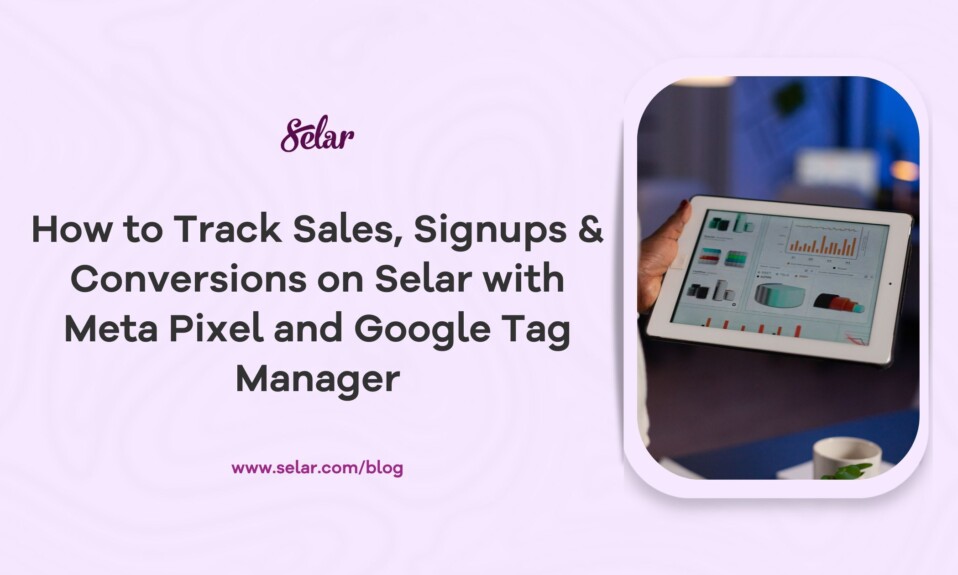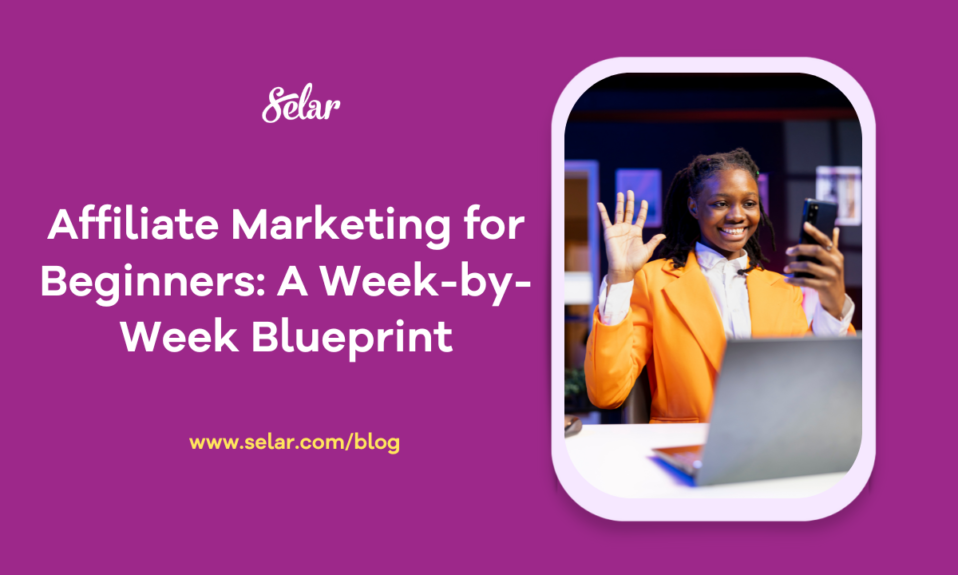
Tickets by Selar vs. Eventporte – Which Should You Use for Your Next Event?
If you’re organizing an event, your tasks extend beyond just selling seats.
You need a decent way to communicate with your audience, manage your guest list, split your tickets into tiers that reflect the level of access each person will get, etc.
Tickets by Selar and Eventporte are two ticketing platforms that come with a host of features designed to make your event organization and management more efficient and drastically easier. But, each tool comes with its unique suite of features that determine whether or not it’ll be perfect for your next event.
In this review, we’ll walk you through their features and in the end, you’ll have enough information to decide for yourself.
Head to Head: Tickets by Selar vs Eventporte
Here’s how Tickets by Selar and Eventporte compare on the features that help you move the needle:
| Feature | Tickets by Selar | Eventporte |
| Pricing (NGN) | 4% + ₦50 per transaction | 3% per paid ticket |
| Supported currencies – Publicly listed | 11 — NGN, USD, GBP, GHS, KES, ZAR, TZS, UGX, RWF, XOF, and XAF | 2 — NGN and USD |
| Add to calendar | ✓ | ✓ |
| Group tickets | ✓ | ✓ |
| Offline guest check-in | ✓ | ✗ |
| On-site event support | ✓ | ✗ |
| Event types | Online, offline, hybrid | Primarily online and offline |
| Affiliate marketing | ✓ | ✗ |
| Integrations | Mailchimp, ConvertKit, Google Tag Manager, Facebook Pixel, Zapier, etc. | Nil |
| Customer redirection after ticket purchase | ✓ | ✗ |
The ten features above are by no means the extent of both platforms’ capabilities. Among others, they share the following features:
- Ticket tiers – Free, Standard, VIP, VVIP, and so on.
- QR Codes
- Discount codes/coupons
- Push fees to buyers
- Detailed tickets, complete with meeting links for online events as well as start and end times, etc.
That said, one detail that stands out is the price difference between both platforms. Eventporte charges 3% on every sale while Selar charges 4% + ₦50 per transaction.
Now, while Selar’s fee is slightly higher, you can actually pass it on to your customers and keep your earnings intact.
But, beyond the pricing, there are a few other key differences between Tickets by Selar and Eventporte that define both event ticketing tools.
For starters, Selar allows African creators to sell event tickets in eleven different currencies used across several countries. Eventporte, in stark contrast, only supports two currencies.
What’s more, with features like offline guest check-in and Selar’s onsite event support, even when internet access fails or the team is overwhelmed, the event can go on in an orderly fashion.
With Selar coming out on top nine out of ten times against Eventporte, it’s pretty clear that despite the slight price difference, Selar gives way more with a specific focus on helping you sell and grow faster.
Tickets by Selar vs. Eventporte: A Detailed Comparison
Outside of a quick breakdown to see what each platform does, it’s necessary to understand how the features, lined up side-by-side, benefit you as an event organizer or a creator. Let’s see where both tools stand out and why it matters:
1. Event Flexibility & Format Support
Hybrid Events and More
Tickets by Selar supports online, offline, and hybrid events, making it perfect for creators looking to serve physical and remote audiences simultaneously.
While this might seem like a minor detail, hybrid events have become a reality for many event organizers, especially as far as conferences, webinars, and masterclasses are concerned.
Not every event has the capacity for the number of guests that indicate interest and shutting out people entirely from an event because there simply is no room leaves money – and leads – on the table.
Eventporte, in contrast, supports online and offline events only with no options for people looking to combine both event types. While it’ll be great for traditional stream-only or in-person events, it places a hard limit on flexibility.
Ticket Customization and Group Options
While both ticketing platforms differ slightly in their approach to event types, their similarities converge here. With Selar and Eventporte, you can sell tickets in tiers — Regular, VIP and VVIP, depending on how you want your event structured.
Additionally, you can sell tickets to groups of people, as opposed to having every person in a group of friends purchase one after the other. For ease of use, both platforms allow you to send tickets to every member of the group individually, as opposed to having to send every ticket through manually.
2. Affordability & Payment Flexibility
Eventporte’s fees are 1% lower than Selar’s. But, it’s worth noting that cheaper does not always equal better.
Among other areas where you get value for money, Selar has a range of tools baked in — as you’ll see in the coming sections — that Eventporte doesn’t support. Besides, you don’t have to carry the transaction fees. Just like Eventporte does, Selar allows you to push the transaction fees to the customer.
Outside of this, though, there are a few other key factors that define Tickets by Selar and Eventporte’s payment features.
Multi-Currency Support
Selar supports 11 different currencies used in multiple countries in Africa and across the world.
Eventporte only has two currencies publicly listed/supported.
While this could simply be a result of the markets they’re looking to serve, it makes it limiting for African event organizers that do not fall within the countries that use these currencies.
Payment Options
To cap it all, Selar lets users pay across a range of gateways, including Google Pay, Paystack, Flutterwave, AliPay, ApplePay, etc. On the checkout page, the options, especially for Nigerian creators, are diverse enough to cater to everyone.
Eventporte, however, gives two options — card or transfer. That’s it. Functional but limiting.
3. Sales Control and Event Execution
How much control does each platform give you while making sales and executing the event itself? Let’s find out.
Ticket Sales and Post-Purchase Control
Tickets by Selar and Eventporte both allow you to control the number of tickets sold. Selar goes a step further and allows you to limit the number of tickets purchased by a single person.
This means you’re not going to end up in a situation where you have more people than you can reasonably cater to. No one leaves dissatisfied. You’re not impossibly burned out either. It’s a win-win.
Beyond this, Tickets by Selar lets you redirect users post-purchase. You could send them to a thank-you page, give them a freebie, or onboard them to a separate platform.
What’s more, there’s a custom checkout form that allows you to grab more details about your guests or conduct surveys that could be useful in the organization and execution of the event.
Eventporte doesn’t offer that level of control as far as post-purchase actions are concerned.
Offline Guest Check-ins
Internet service providers try to cover all locations but it’s not always possible, and where they have excellent coverage, they can sometimes have downtimes. With guest check-ins being the strongest line that separates order from chaos during events, it’s incredibly important that it happens uninterrupted and regardless of external factors.
To ensure the best experience, even during internet outages, Tickets by Selar has an offline guest check-in feature. Eventporte does not support this feature and that could leave you vulnerable if internet turns out to be an issue while signing people in.
What Eventporte does have is QR code and ticket-ID check-ins. But, Selar has that too alongside multi-device check-in that helps you split the labor between multiple team members.
4. Marketing, Integrations, and Automations
We’ll take a wild guess and say that guest management isn’t your only problem. After all, you need to have the guests first to even be able to manage them. Let’s see how both tools stack up.
Affiliates, Upsells, and Product Discovery
First, Selar’s affiliate marketing network, with over 40,000 affiliates, is easily one of the best parts of the platform as far as ticket marketing is concerned. While you’re actively trying to get people to come aboard and purchase your tickets, you can list your product on the affiliate market. They’ll pick it up and begin working actively to reach your target audience and make sales for you in exchange for a commission.
Second, Selar has upsell and cross-sell features that allow you to sell related products to your guests just before they complete their purchase.
Imagine, for a second, that you’re organizing a workshop to help people make their first sale as a digital creator, but you’ve already published an ebook on the same. For people looking to make the most of the workshop, you can set up your store such that the ebook is recommended immediately, or even a ticket to another event. That way, you’re making more money from one customer.
Eventporte has neither of these features. What it does offer is a discovery page where users could potentially find and purchase tickets for your event. In terms of active support for your marketing, however, Selar comes out on top.
Tracking and Analytics
Besides the native sales tracking section of the dashboard on Selar, which allows you to export user data as a CSV file, you can connect your store to Google Tag Manager. This lets you plug in Google Analytics, Meta Pixel, TikTok Pixel, Hotjar, or whatever stack you use to track behavior and retarget visitors.
Eventporte offers basic details relating to ticket purchase on their dashboard and that’s about it. No sophisticated integrations to track user behaviour and inform marketing decisions.
Post-Sale Automation & Emails
Selar connects with tools like Mailchimp, SendPulse, Kit, etc. for nurturing buyers post-purchase and Zapier for stress-free automations.
They also send an abandoned cart email every time someone gets to the checkout page but bails out. It’s entirely automated and needs no real effort from you.
EventPorte has an internal tool for communications before and after the event, but it’s essentially a closed-loop — no external integration or sophisticated automation.
5. Scalability & Creator-Centric Design
Selar isn’t just a ticketing tool. It’s part of a broader creator-centric ecosystem. You can sell digital products, run online courses, host paid webinars, and collect emails all in one place.
EventPorte is a standalone ticketing solution, which works well if you’re only running events. But if you’re trying to build a scalable business or ecosystem, it stops short.
Final Verdict — Which Ticketing Tool Works Best for You?
EventPorte is a clean, solid option for event organizers who need a quick plug-and-play solution and don’t mind having to do a few things manually.
But, if you’re a creator looking to build a brand, automate stressful tasks in event creation and management, organize online, offline and hybrid events while scaling across other fronts, Tickets by Selar offers more power, control and opportunities to grow.








